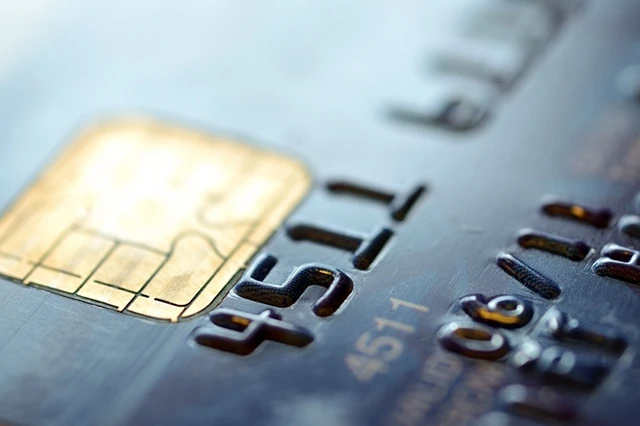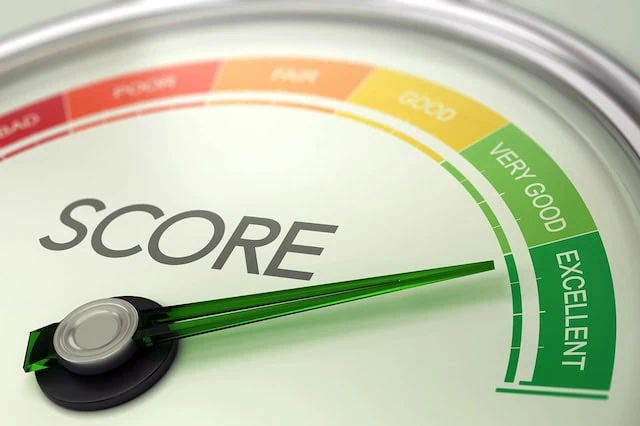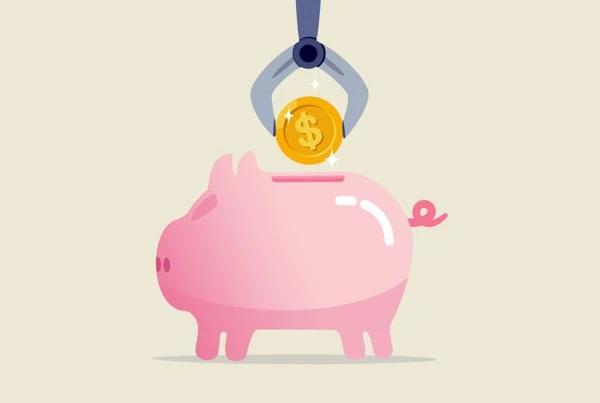A prepaid card acts much the way a gift card would in that they allow you to spend money wherever accepted up to the amount stored on the card. After depleting the balance, you can reload the card online, through an ATM, network store or other means specified by the prepaid card.
These prepaid debit cards and secured credit cards come from major banks and brands like Visa, MasterCard, Discover and American Express. Many people use them as an alternative to cash as well as to access payment systems accepted by many merchants without having access to a formal banking account.
This is an article about how prepaid debit cards work, how they compare to more traditional forms of payment, their benefits for consumers and businesses alike, their advantages and disadvantages, as well as their impact on building your credit.
Let’s dive in.
Featured Financial Products
Table of Contents
What is a Prepaid Card?

A prepaid card is a type of payment card that can be loaded with money in advance and then used to purchase goods or services without incurring debt from the issuer.
The most common type of prepaid cards is a prepaid debit card (which acts like making bank account withdrawals when purchasing goods and services).
You can also use a secured credit card (which works similarly to traditional plastic but requires you to front the money you spend to avoid overspending your balance).
You can also have another type of prepaid card like gift cards, which can only be spent on one merchant offering a particular product or service.
How Do Prepaid Cards Work?

While features and functionalities of prepaid cards vary widely, they generally have these common features:
- ATM access: Some prepaid cards only allow in-network ATM withdrawals for free, meaning at the issuing bank or financial institution’s branch network. Others allow you to access nationwide ATM networks like those through branded bank networks or national network providers.
- Reload options: A prepaid card generally allows you to add money to your balance in multiple ways. This can include through direct deposits, visiting a participating retailer to load more cash onto your balance, depositing checks at ATMs or even transferring money online or through mobile check deposits on a smartphone app.
- Card limits: Many cards will either restrict how much you can withdraw from an ATM, spend or reload per day.
- Consumer protections: One major advantage to a prepaid card over cash is the liability and fraud protection you have from federal law. Some offer purchase protections, though you may face some difficulty disputing unauthorized transactions or correcting errors seen on your account. Further, many of these products offer FDIC insurance, covering your balance if the issuer goes out of business.
- Fees: One theme all of these cards have in common are fees. There’s a laundry list of them and should always be something you have in mind when comparison shopping. Be sure to read the fine print because some can be waived if you take certain actions—by having direct deposits, for example.
- Expiration dates: Like a credit card, a prepaid card has an expiration date. If you’ve got a remaining balance on the card, you need to have a card reissued before it expires. If your card expires with funds still on it but no new card has been reissued, contact your issuer. If they refuse to issue a new card, file a complaint with the Consumer Financial Protection Bureau.
- Other features: Not all prepaid options are the same. Some offer check writing, internet banking and multiple cards for people with different needs like family members. Some prepaid cards offer incentives, such as cash back on purchases.
Related: Debit Cards for Under 18: How Old Do You Have to be to Get a Debit Card?
What are the Advantages of a Prepaid Card?

A prepaid card is often as good as cash, though sometimes even better, such as when:
- You don’t want to carry cash around; prepaid cards offer certain consumer protections about theft and misappropriation of assets, which cash simply cannot
- Prepaid debit cards can be used to make online purchases
- Prepaid cards can also make a more attractive financial gift than cash
Prepaid cards work best for the unbanked or those looking for a better budgeting system for themselves. These can be a welcome alternative to credit cards with the potential to fall behind on payments and get hit with costly interest.
Budgeted properly and controlled well, prepaid debit cards can build discipline with your money and show you how to grow your assets without the burden of costly debt accruing from credit cards. You also don’t need a credit check run.
Plus, these products don’t have a spending limit beyond what you place on the card, avoiding costly overdraft fees. You can’t spend more than you have, making it easier to minimize the costs of using these financial products.
Likewise, you won’t need to worry about missing a payment and threatening to lower your credit scores. As we’ll discuss later, unlike credit cards, these prepaid alternatives don’t impact your credit.
Featured Financial Products
What are the Disadvantages of a Prepaid Card?

The largest downside to prepaid debit cards comes from the assortment of fees which can erode your cash balance quickly.
These fees, covered in depth below, may include monthly fees, transaction fees, withdrawal fees, balance inquiry fees, reloading fees, paper statement fees, decline fees, inactivity fees, card-to-card transfer fees, bill payment fees, card replacement fees, additional card fees, foreign transaction fees, and card cancellation fees.
Some employers prefer to pay their employees through a prepaid debit card used as a payroll card, though employees have a legal right to decline this payment method. These fees can reduce their take-home pay.
Common Fees for Prepaid Cards

Monthly fee
You may face a monthly fixed fee even if you don’t use the card. The issuing institution automatically deducts the fee from your account balance much like a bank would against a bank account.
Depending on the company, some issuers will waive the monthly fee under certain circumstances. For example, some prepaid debit cards will allow you to avoid the monthly fee if you agree to have your pay deposited directly into your prepaid account.
Depending on the fee arrangement and the amount you use prepaid debit cards, a monthly fee may be cheaper than paying a fee to process each transaction.
Transaction fee
This fee gets assessed every time you make a purchase with a prepaid debit card on certain types of transactions, such as when you make purchases in stores or online.
When you use a prepaid debit card, your card provider might charge transaction fees on a “pay-as-you-go” plan. Some prepaid cards have a monthly fee; others do not. Providers may let you choose your preferred arrangement.
In-Network / Out-of-Network ATM Fees
Different banks and ATMs belong to different payment networks. The bank that issues your card likely belongs to one or several of these networks.
Some ATMs may be in-network while others are out-of-network, depending on your card and the particular network to which an automated teller machine belongs. The terms of your cardholder agreement may put limitations on where and how you can use your card.
Balance Inquiry Fee
You might be charged a fee if you ask for the balance of your prepaid card at an ATM or by calling customer service. Most prepaid options give you the opportunity to look for free, though some charge a fee.
You might be able to find your account online, or by email or text message. Before you use your card, be sure to review the terms and conditions for fees that apply.
Cash Reload Fee
A cash reload fee is a charge you have to pay when you add money to your card. Most prepaid choices also let you load money onto them by doing things like having your employer deposit it onto the card or bank account associated with it. You might save money by avoiding a reload fee.
Paper Statement Fee
Some prepaid cards charge a fee if you ask for paper statements. If you want to see your bank statement without paying, go online because it is likely free to access.
Prepaid card options were developed as a way for people to avoid high overdraft or checking account fees by having people load money onto the card and then use it for purchases.
The Consumer Financial Protection Bureau drafted the prepaid rule to get information about your account for free.
Unless they provide paper monthly statements, a provider of prepaid debit cards must furnish you with balance information by phone and online for free.
Some companies will automatically send transaction history to your address in the mail for a fee while others will only do so if you request it.
Decline Fee
When your card is declined, a fee may be charged due to the attempted purchase exceeding the amount of money remaining on your card. Thankfully, many prepaid options do not charge decline fees.
Inactivity Fee
You pay an inactivity fee if you fail to use your card within a certain period of time between purchases or activation. There are a range of cards that charge inactivity fees. If you are not using your card, it is important to keep track of the length and type of inactivity fee the card charges with its contract.
Like decline fees, not all prepaid products charge an inactivity fee.
Card-to-Card Transfer Fee
Prepaid cards (both debit and credit) may charge fees for transfers of money from one prepaid card to another. This is called a card-to-card or person-to-person transfer fee. Some card issuers allow you to transfer money between prepaid products online without a fee.
Bill Payment Fee
Depending on the prepaid product you have, some card issuers allow you to pay your bills online through their website. For using this service, the provider may charge a fee each time you use the program to pay a bill.
Because this can quickly lead to higher costs, make sure you understand the terms of use for your card. Compare other prepaid products available to you to see if you can pay less or no bill payment charges.
Likewise, you may want to consider a different payment option altogether to save money. This can include setting up a savings account and checking account at a bank or credit union, and using these accounts to pay your bills.
You can set up direct deposit without paying for anything, place money in a savings account to build an emergency fund and have online bill pay done for free.
Card Replacement Fee
When you have a prepaid card, they may charge to replace it if it is lost or stolen.
Additional Card Fee
Prepaid providers may offer the option to designate an “authorized user” of your account. As an authorized user, you can spend money with a prepaid card but may face a fee for the additional card.
Any new authorized users will also need to verify their identity online or call customer service. Being listed as an authorized user can build credit scores for people with no or thin credit files.
Foreign Transaction Fee
When you make a purchase in a foreign currency or foreign country, your card provider will likely assess a foreign transaction fee. These currency conversion fees come with a few nuances. These fees are more nuanced than a simple flat fee as they usually get applied as a percentage of the overall purchase.
Not all prepaid cards are designed for international use, so check your cardholder agreement before traveling or when using the card in a foreign currency.
Card Cancellation Fee
A prepaid card can usually be cancelled without a fee. For a debit card, the card issuer will freeze the account after cancellation and for credit card, the issuer will stop processing payments. To avoid the fee, you can spend down or withdraw any remaining funds before cancelling your prepaid card.
When comparing prepaid cards, you have to consider how the card will fit into your spending habits and how the various fees will affect your spending behavior.
The Consumer Financial Protection Bureau established its prepaid rule to require these fee disclosures. The card packaging will include a chart containing certain key fees and other information about the prepaid account, allowing you to comparison shop.
Likewise, you can also access a website shown on the packaging with other information about the card. You should review this additional information to learn more about these products.
Featured Financial Products
Do Prepaid Debit Cards Help Build Credit?

Despite a prepaid debit card having the same look and feel of a regular credit card, these cards don’t help to build your credit like a credit card can.
For an account to impact your credit score, it needs to count as a debt or liability. To build good credit, you need to make regular payments on these debts over long periods of time. These factors play the biggest roles in building your credit.
A prepaid debit card, on the other hand, works like a regular debit card whereby you load the card with money (or, in the case of a debit card issued by a banking app or institution, have a balance in your account) and draw on the funds when you make purchases.
You can use a prepaid card like a credit card, but it won’t build credit like a credit card.
In effect, because you don’t borrow money from anyone with a prepaid card, the account doesn’t get reported to credit bureaus and therefore has no effect on your credit score.
Related:
- 15 Money Apps for Kids (Debit Cards, Investing, Management)
- How Parents Can Help Their Children Start to Build Credit
Will Prepaid Credit Cards Affect Your Credit Score?
When you use a regular credit card to make purchases, you borrow money from the card issuer. You can repay it in full or let the funds carry over to your next payment due date.
If you carry a balance, you’ll accrue additional costs in the form of interest charges.
Credit card companies typically report your payment activity to one or more of the three major consumer credit bureaus, however debit cards work differently.
A prepaid debit card is like a gift card that you purchase for yourself; once it has been fully depleted, the card can’t purchase anything until you reload it, if that is an option.
Non-reloadable prepaid credit cards are unattractive to some consumers because you cannot reuse them after depleting the funds.
In short, your use of prepaid credit cards doesn’t get reported to credit bureaus. As a result, they don’t affect your credit score.
Alternative to Prepaid Debit Cards
If you can’t qualify for other credit cards because you have bad credit history or none at all, you might consider a secured credit card instead. Secured cards are easier to obtain because they require a refundable security deposit as collateral for the lender.
The advantage of a secured credit card is that your payment history and number of accounts will be reported to the three major credit bureaus. Over time, with a steady and consistent payment schedule to handle your debt, this will help to build up your credit history.
Bank accounts nor debit cards of any kind won’t have your purchase history reported, meaning they won’t help with your credit.
Consider opening checking and savings accounts with a bank to manage your money and then opening a secured credit card instead to begin banking and building credit.
You can have your paycheck sent to your account via direct deposit and then have this balance serve as collateral on the card when you make the transfer. The amount you deposit as collateral determines your credit limit.
Related:
- Chase First Banking Account and Debit Card for Kids Review
- Axos First Checking Account Review [Free Checking + Debit Card]
How Much Money Can You Put on a Prepaid Card?
The amount will vary, but likely has a daily limit. You can apply for a no limit or high limit prepaid card to avoid running into these problems. A card like Netspend’s Prepaid Visa allows up to $7,500 per day and $15,000 per rolling 30 day period.
Prepaid Debit Cards vs. Regular Debit Cards
Using a debit card involves pulling against a balance held in the linked bank account. Therefore, you need to meet the requirements for opening a bank account for this type of card. To use a prepaid card, you only need to have an account with an issuer.
With a regular debit card, as you generate income, make deposits, or spend money from the associated account, your account balance will fluctuate from day to day.
When you use a prepaid card, you only have a fixed amount of money to spend. This declines as you spend it or increases if you reload the card.
Prepaid Cards vs. Credit Cards
These two types of cards, debit and credit, allow you to spend money in a cashless manner, avoiding any physical transfer of cash between parties. They share many more similarities than differences, but some do exist.
When breaking down how prepaid debit cards vs. debit cards vs. credit cards compare, look at the following distinguishing features
- Prepaid debit cards: You pay before the purchase. You load money onto the card by any of a number of methods before paying for transactions.
- Debit cards: Pay now. When using a debit card, the funds pull directly from your checking account.
- Credit cards: Pay later. When using a credit card, the purchases simply add to your line of credit and you pay back the bank later.



![Check Out the New 401(k) Contribution Limits for 2026 [Save More for Retirement] 14 number blocks switching from 2025 to 2026.](https://youngandtheinvested.com/wp-content/uploads/2025-to-2026-blue-background-1200-600x403.webp)

![7 Best Microsavings Apps [Save Money, Reach Your Goals] 16 best microsavings apps](https://youngandtheinvested.com/wp-content/uploads/best-microsavings-apps-600x403.webp)
